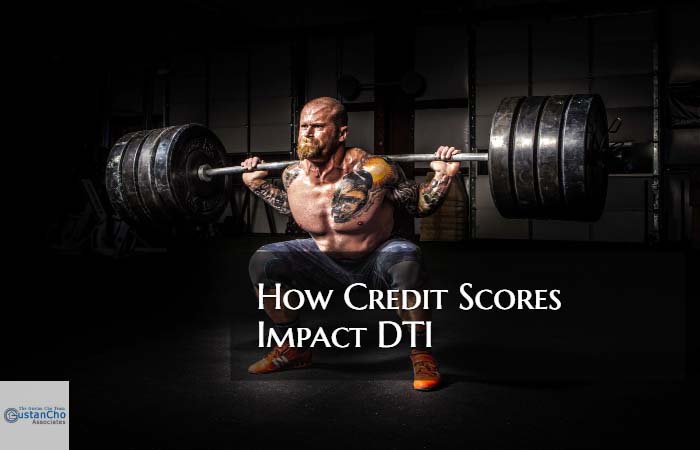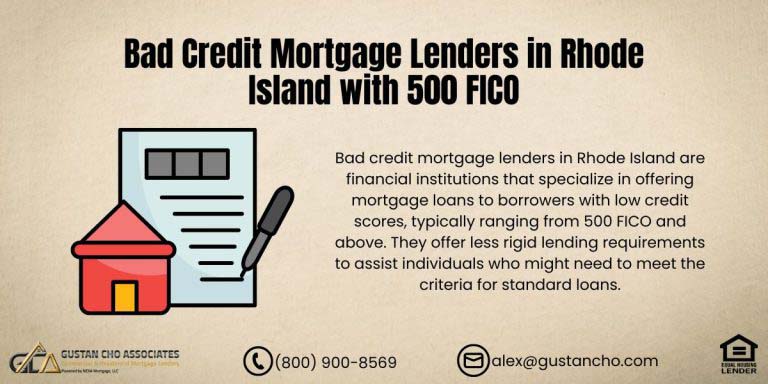This BLOG On How Credit Scores Impact DTI On FHA And Conventional Loans Was UPDATED On May 5th, 2019
A person’s credit score will determine whether or not the person can qualify for a certain mortgage loan program.
- For example, the minimum credit score needed to qualify for a conventional loan is 620
- The minimum credit score to qualify for an FHA loan is 500
- However, buyers who have credit scores between 500 and 579, HUD, the parent of FHA, requires buyers to put at least a 10% down payment on a purchase
- FHA minimum down payment requirements is 3.5% down payment for a home purchase
- To qualify for a 3.5% down payment FHA loan, buyers will need a minimum of a 580 credit score
How Credit Scores Impact DTI On FHA Loans
Besides credit scores, the debt to income ratio is the next most important factor in qualifying for FHA Loans.
- There are two different types of debt to income ratios
- The front end debt to income ratios
- The back end debt to income ratios
- The front end debt to income ratio is also known as the housing ratio
- The housing ratio, or front end debt to income ratio, is the monthly principal, interest, taxes, and insurance divided by the borrower’s monthly gross income
- For example, if the principal, interest, taxes, and insurance on a home purchase is $1,000 per month
- The mortgage loan applicant makes $4,000 per month
- The front end debt to income ratio is $1,000 divided by the borrower’s gross monthly salary of $4,000 per month
- This yields 25% front end debt to income ratio
- The back end debt to income ratio is calculated by the following:
- Adding the proposed housing payment ( PITI )
- Plus the borrowers all other monthly minimum payments which include the following:
- minimum credit card payments
- auto loan payments
- student loan payments
- child support payments if applicable
- alimony payments if applicable
- installment payments
- other minimum payments
- Take the above sums and dividing it by the borrower’s gross monthly income yields the back end debt to income ratio
- Case Scenario:
- If the mortgage loan applicant has a proposed $1,000 housing payment
- The sum of all of the minimum monthly payments total an additional $1,000 for a total sum of $2,000 in monthly payments per month
- The gross monthly income is $4,000 per month
- Dividing the $2,000 in monthly minimum payments by the mortgage loan applicant’s gross monthly wages of $4,000 will yield a back end debt to income ratio of 50%
How Credit Scores Impact DTI Caps
A mortgage loan applicant’s credit scores do affect the debt to income ratios allowed in mortgage qualification. The maximum front end debt DTI allowed per FHA lending guidelines is 46.9% and back end DTI is 56.9% to get an approve/eligible per AUS FINDINGS.
- The maximum back end debt to income ratios allowed under current FHA lending guidelines is 56.9%
- The 46.9% front end maximum debt to income ratios and 56.9% back end debt to income ratio caps are for borrowers with credit scores of at least 620 or higher to get AUS Approval
- Borrowers with credit scores lower than 620 DTI allowed per HUD Guidelines is 43% to get an approve/eligible per Automated Underwriting System
- There are no exceptions to the above credit scores versus debt to income ratio requirements
Lender Overlays On Debt To Income Ratios
There are many lenders who implement their own debt to income ratio requirements above the FHA maximum lending debt to income ratio requirement.
- For example, borrowers with credit scores above the 620 with a 46.9% front end DTI and 56.9% back end DTI should be eligible to get an approve/eligible per AUS
- However, a particular lender may impose their own requirements, called mortgage lender overlays, where they will cap the debt to income ratios at 45% to 50%
- Other lenders will set their own credit score minimums such as 45% debt to income ratio FHA loan if their credit scores are below 680
- They may increase DTI caps to 56.9% back end DTI for borrowers with higher than 680
- Yet there are other lenders, such as myself, where we have no overlays on government and conventional loans
- We just go off the federal minimum FHA mortgage lending guidelines
- As long as it is approved/eligible per DU FINDINGS, we just go off the DU FINDINGS or LP FINDINGS ( LP FINDINGS ARE FREDDIE MAC’S VERSION OF THE AUTOMATED UNDERWRITING SYSTEM ).
How Credit Scores Impact DTI On Conventional Loans
Unlike FHA Loans, the credit scores do not have any impact on the debt to income ratios on Conventional Loans. With Conventional Loans, the maximum debt to income cap is at 50%. However, how credit scores impact DTI on Conventional Loans is with the private mortgage company insurer. In order for private mortgage insurance companies to insure up to 50% DTI, borrowers need a 700 credit score. Otherwise, PMI companies will only insure conforming borrowers up to 45% debt to income ratios.
- Credit scores do have a huge impact on mortgage rates on conventional loans
- The lower the credit score, the higher the interest rate on conforming loans
- To get the best available conforming interest rate, borrowers should have a credit score of 740 or higher
- With FHA, any borrowers with a credit score of 680 will get the best available FHA interest rate
- Borrowers with credit scores of 600 or lower will get higher mortgage rates on FHA Loans
- Although credit scores have a slight impact with FHA Loans, it is not as credit-sensitive as Conventional Loans









